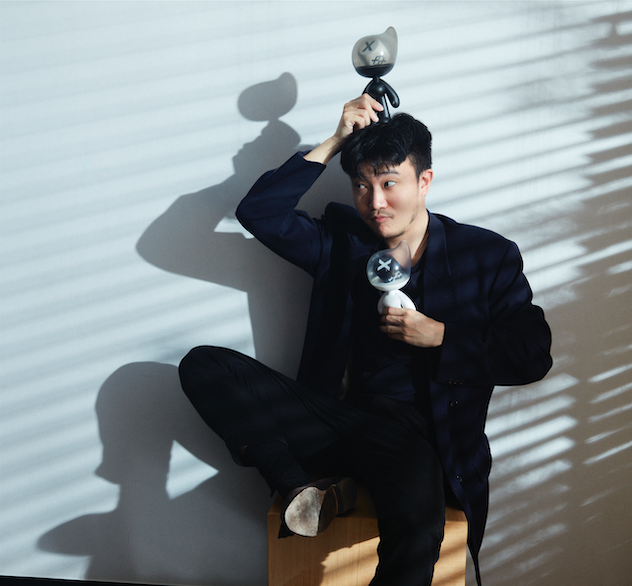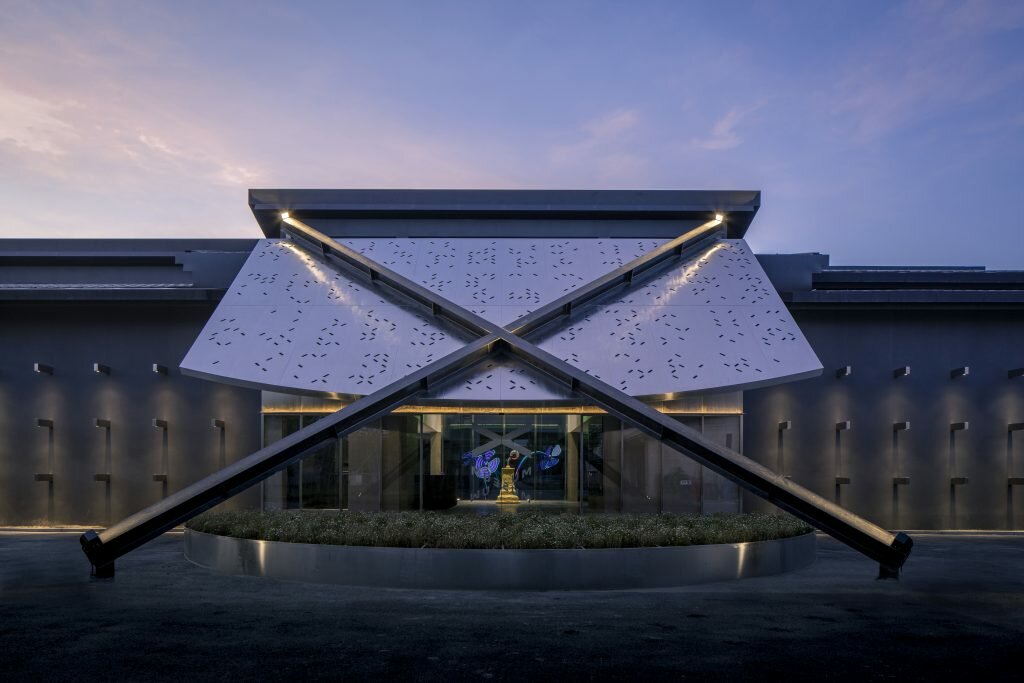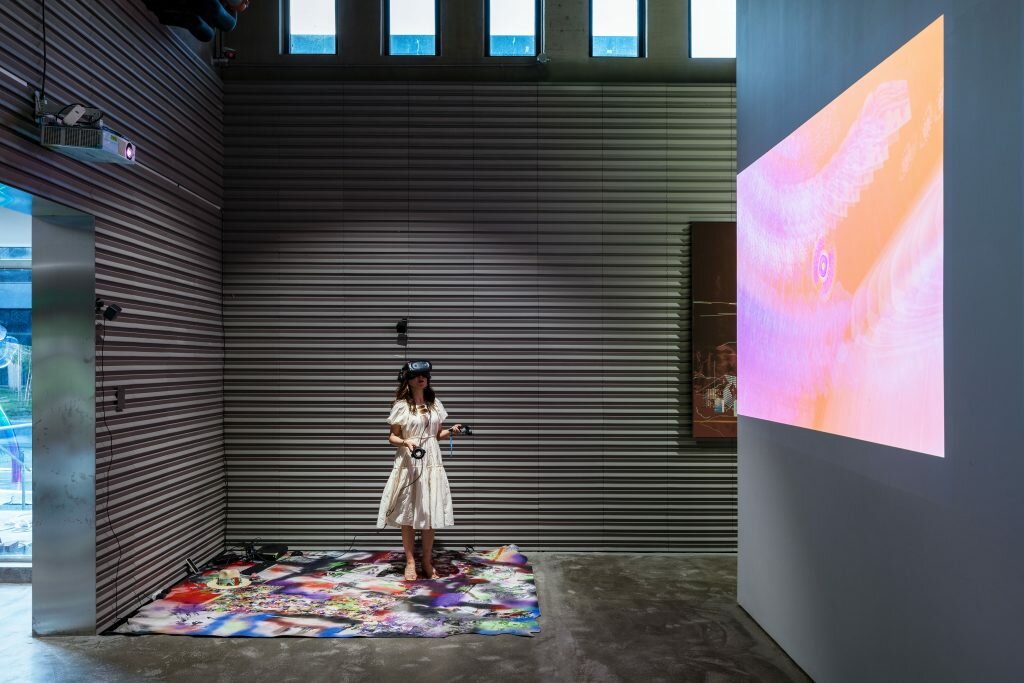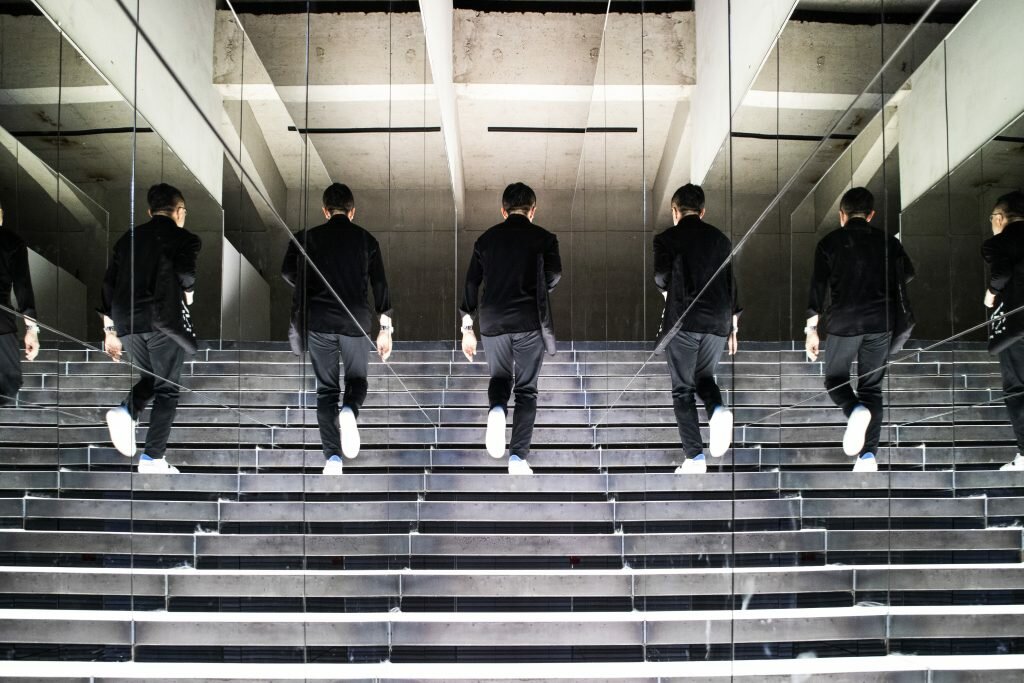Is there anything Michael Xufu Huang cannot do? At just 26, the Chinese art collector has co-founded not one but two art museums in Beijing. The second private non-profit, X Museum — the “X” is taken from his Chinese name — officially opened in late May, after initial plans to open during Gallery Weekend Beijing in March were scuppered as the country worked to control the spread of the coronavirus.
While other institutions scrambled for ways to keep audiences engaged during lockdown, X Museum, though forced to delay its physical opening, launched an interactive virtual space the same day it was meant to stage its grand opening. Housed on the museum’s website, a portal created by artist Pete Jiadong Qiang gamified the user experience, where sections — be it a virtual tour of the museum or artist bios — could be navigated by arrow keys and toggles, as surprise elements popped up on screen.
“That’s actually something we’d been planning since the beginning,” says Huang. “The site is part of the new norm that we’re hoping to create. I didn’t want it to be flat — that would be a normal way of consuming information. We wanted to create something interactive, like a game, that could give information to others but not replace the experience of the physical space.”
The idea of a new norm is crucial to Huang’s vision and was the reason behind establishing the museum, says Huang. “Since the beginning, this ethos has influenced what kind of shows we wanted to put on — we wanted to challenge and form the new norm with respect to Chinese artists.”
A challenge is definitely what the millennial undertook with his first exhibition, How Do We Begin?, a triennial showcase that this year comprises 33 emerging artists of Chinese or Chinese descent under 40 years old.
“I wanted to show emerging artists because they lack a platform. A lot of people show bigger artists but I want to do something that’s… in Chinese, they have a saying, something akin to putting my own flag onto something and setting a standard,” says Huang. “I really like the Venice Biennale and such types of shows, because they’re very informative and very well curated, and I want to be that platform in China for artists who are Chinese or of Chinese descent.”
“I want to give them opportunity because they lack space to showcase their work. Foreign artists — there are so many museums abroad, they have all these museum shows — you know their CVs are filled with museum shows, but Chinese artists don’t get as many opportunities abroad. At the same time, in China, there aren’t many museums and not many have that lust to show young artists. So, this platform is for young Chinese artists. I thought, a biennial is too fast, there aren’t that many young Chinese artists so we’ll do a triennial where every three years, there will be another round.”
Huang speaks from experience. In 2014, when he was merely 20 and still an art history student at the University of Pennsylvania, he co-founded M Woods, a respected private museum in Beijing’s 798 art district with collector couple Wanwan Lei and her husband Lin Han. That first venture looked to introduce international experimental artists into the Chinese art market, with a focus on bringing the likes of Andy Warhol, Nicolas Party and Paul McCarthy into China.
Why the change of heart? While Huang still believes in the value of appreciating Western work — he is the youngest and first Asian board member of the New Museum in New York City and has served on its International Leadership Council — “it doesn’t help the local community to grow our influence around the globe,” he says.
“Our world is so dominated by the West and they’re the ones deciding who is good, who’s not good. I just don’t think that that’s… you know, I’m Chinese, so I need to decide who is good for at least the people around me.”
Of museums in China, Huang says: “I think they’re doing a really good job engaging more audiences in art, but I want to be able to produce a show for an artist that is better than any of their previous museum shows abroad so that we’ll always be doing a milestone show for an artist. I want someone to do a show here that they’ll remember for a long time because it will help their career take off and launch them into their next phase.”
Inaugural exhibition How Do We Begin? is programmed together with the X Museum Triennial Award, which will go to the artist who best represents the future of Chinese contemporary art. The judging panel comprises luminaries of the art world, including Zhang Zikang, director of the Central Academy of Fine Arts Museum in China; Kate Fowle, director of MoMA PS1 in the US; Hans-Ulrich Obrist, artistic director of Serpentine Galleries in London and Diana Campbell Betancourt, artistic director of Samdani Art Foundation and chief curator of Dhaka Art Summit in Bangladesh.
For all of Huang’s ambitions, the museum experience is rooted in his own emotional connection to art. A collector himself, one of his favourite artists is Amalia Ulman, best known for her series on Instagram.
“It’s one of the smartest works I’ve seen that is firstly visually pleasing (it’s very unique photography) and also a very smart way of commenting on the lifestyle of a new generation. We’re constantly on the Internet, constantly performing; we’re curating our content. We’re performing as somebody that isn’t who we really are, but someone we want others to think that we are. So I think she’s very accurate and nobody has done it before.”
Huang’s training in art has been prolific, but his sensibility also clicked into place early on when he was attending secondary school in England.
“I was studying art and I’d go to a lot of exhibitions at the Tate, the Royal Academy, the Hayward and galleries in Whitechapel. I was still studying then so I would look at art in a very careful, methodical way, very information based and not really putting my own feelings and sensations into seeing art. It was more like, ‘Oh, why’s this painted this way? Why is this good? What movement is that?’ Very mathematical, because you know, I was just getting used to it.”
“But the Alex Katz exhibit that I saw on holiday with friends [at Tate St Ives in St Ives, Cornwall] really transformed me. When I saw the exhibition, everything just clicked. It changed my whole feeling. I feel the art now and I feel the echo and I see why it’s important, and I am enjoying the creativity and sensation rather than trying to learn what happened.”
Because of this, Huang believes in the power and purpose of the physical experience. “I think the physical aspect is very important; to see our shows and to see art — texture is very hard to see,” he says. “And the triennial showcases many different mediums. There are VR works and multimedia works. Some are interactive and you need to use your hand and you can’t get the same effect online. You really need to see it in person. So that’s why we didn’t do a completely VR site.”
“In addition, even our physical space was designed to be experienced differently, from our courtyard to our landscaping. We didn’t want normal landscaping, we wanted everything about us to be different and completely new. Even our lighting is different.”
That commitment has paid off. Since opening the museum to the public at the end of May after coronavirus restrictions were lifted, Huang and his co-founder and erstwhile classmate Theresa Tse, have secured new trustees from industries ranging from insurance to medical and tech companies. Visitors to X Museum are all gifted with Covid-19 insurance and healthcare workers can visit X Museum free of charge for the rest of the year.
“I think they really do think what we’re doing is meaningful and they believe that the work we show of the new artists is meaningful,” Huang muses, when asked why they’ve found support in less creative industries. “They feel really relaxed because their brains have gained more awareness and it’s something that has provided them with more ways of thinking.”
Despite all the talk of physicality, X Museum’s triennial showcases will remain firmly rooted in technology. “I think technology is a totally unavoidable issue” Huang says.
So will the museum’s themes always look to the future, I enquire? “I want X Museum to be a platform that everyone knows they’ll discover something here,” Huang replies. “You’re not here to see a retrospective.”





